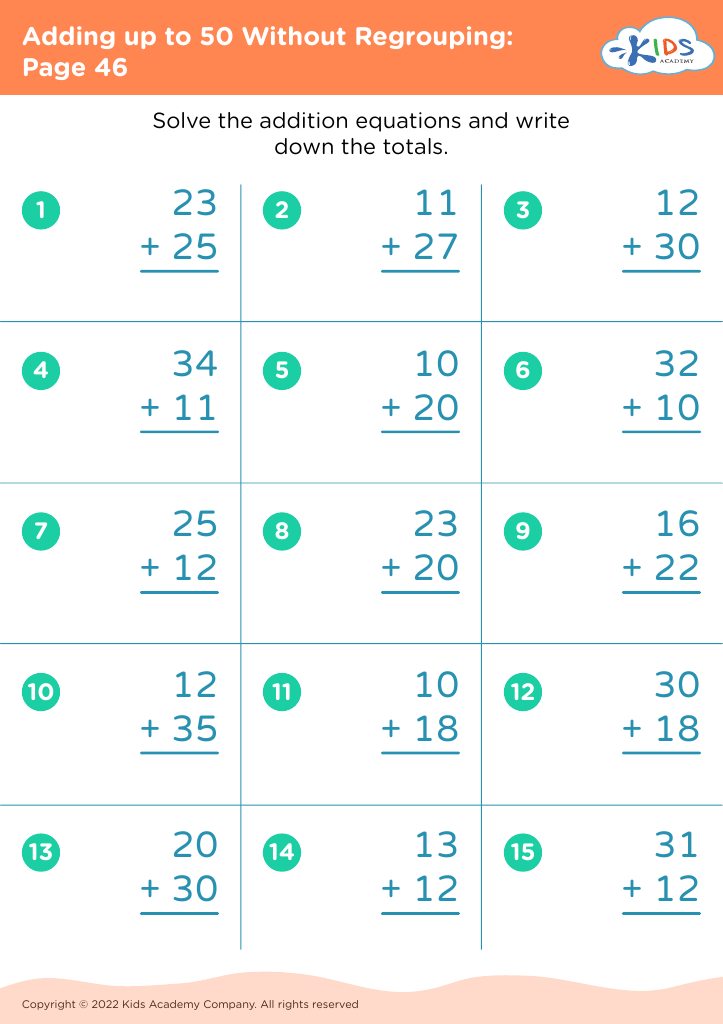Shape identification Adding up to 50 Worksheets for Ages 7-8
3 filtered results
-
From - To
Unlock the power of shape identification with our engaging "Shape Identification: Adding Up to 50 Worksheets" designed for children ages 7-8! This collection features 50 dynamic worksheets that promote recognition of geometric shapes while incorporating essential addition skills up to 50. These worksheets combine fun visuals with educational exercises, enhancing critical thinking and problem-solving capabilities. Your students will develop their mathematical understanding through interactive activities that make learning enjoyable. Perfect for classroom use or home practice, these resources empower young learners to build a strong foundation in math. Explore the world of shapes while mastering addition today!
Shape identification and adding up to 50 are foundational skills that significantly contribute to a child's cognitive development. For children ages 7-8, understanding shapes helps in recognizing patterns, fostering spatial awareness, and enhancing problem-solving abilities. These skills are vital for real-life applications, such as understanding geometry in higher grades and navigating the world around them. Additionally, shape recognition supports creativity in art and design, encouraging children to explore their artistic side.
Adding up to 50 is equally important as it builds essential arithmetic skills. Mastering this skill introduces children to addition concepts and mental math, which are crucial for future mathematical learning. It lays the groundwork for understanding more complex operations, like subtraction, multiplication, and division. Moreover, being comfortable with numbers helps boost a child's confidence, enabling them to tackle math-related subjects in school effectively.
Both shape identification and addition are intertwined in daily activities—like cooking or shopping—allowing children to see the relevance of classroom learning in their everyday life. By fostering these skills, parents and teachers equip children with the tools needed for academic success and lifelong learning, ensuring they remain curious, capable, and confident in their abilities.















